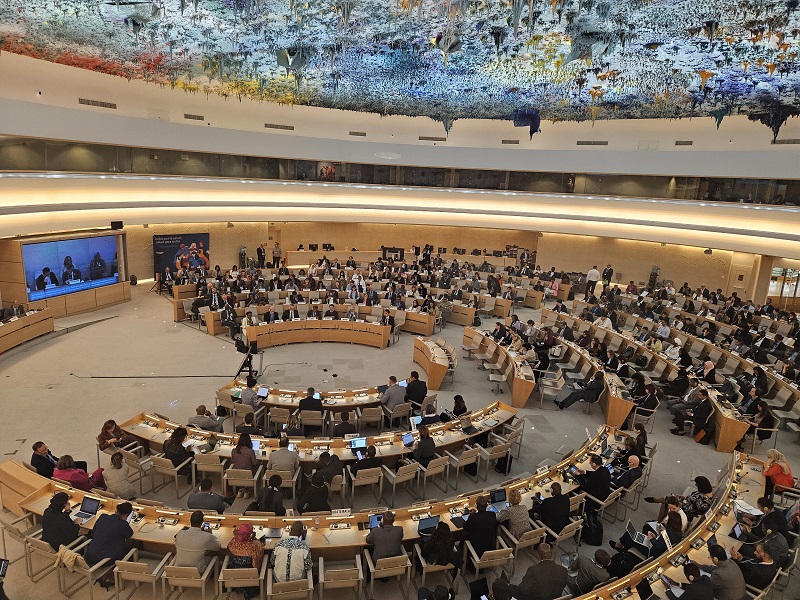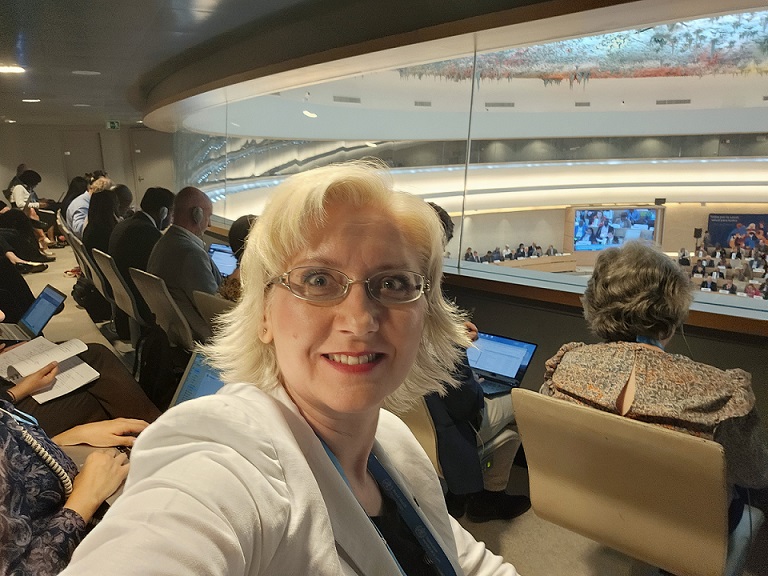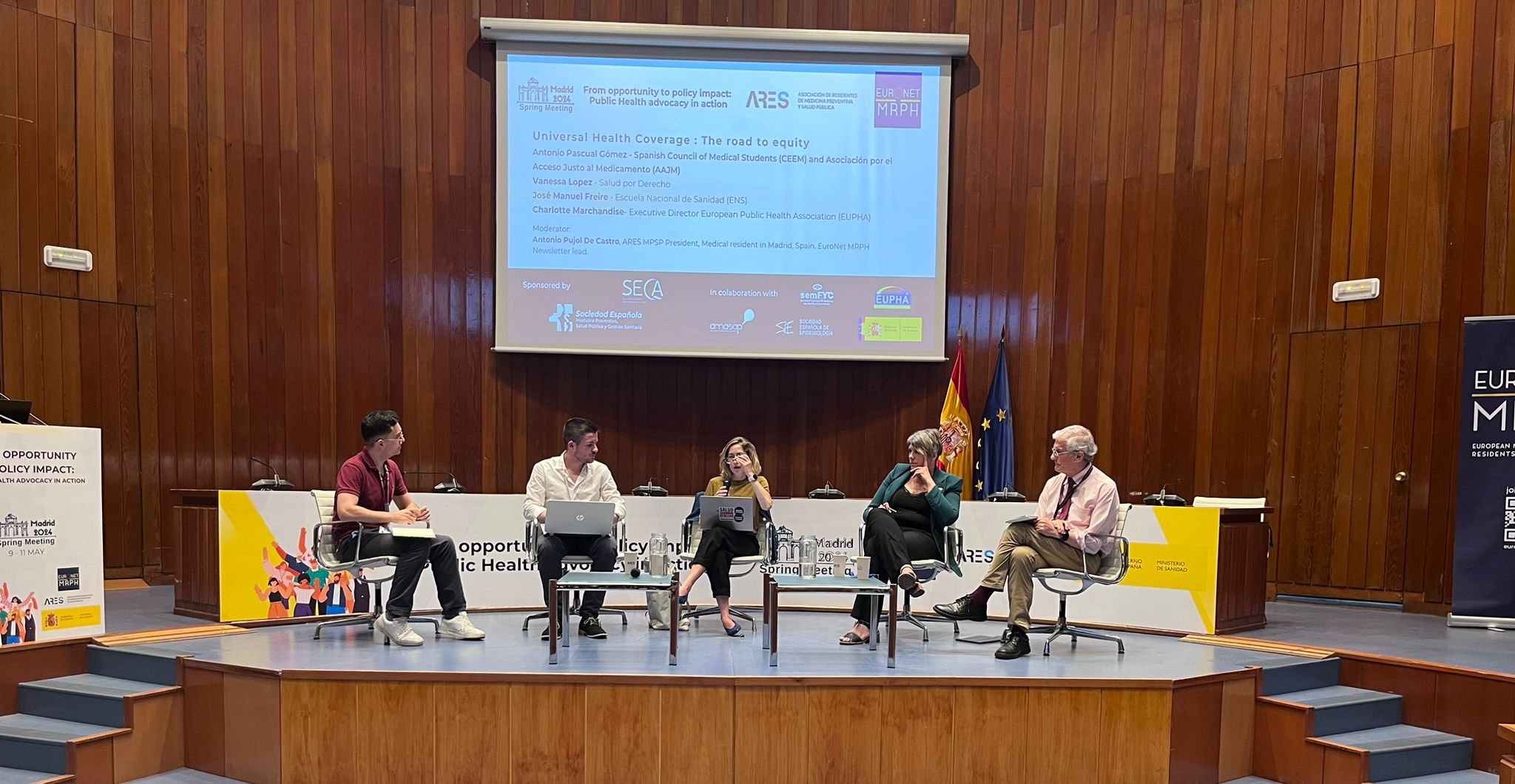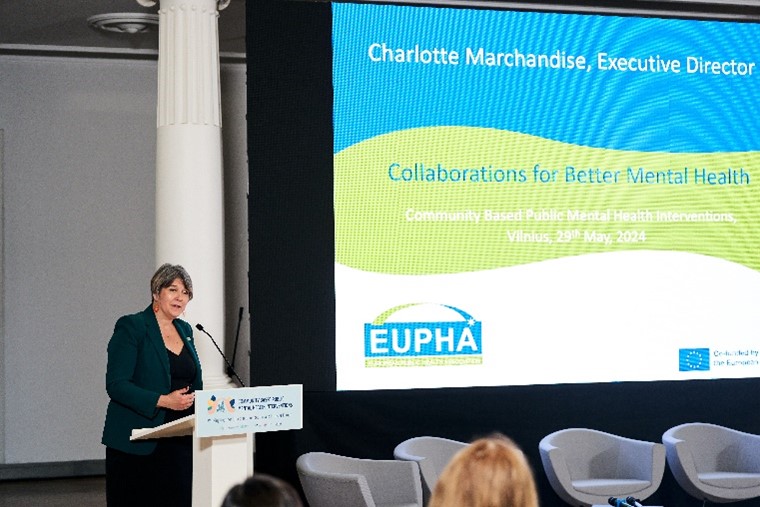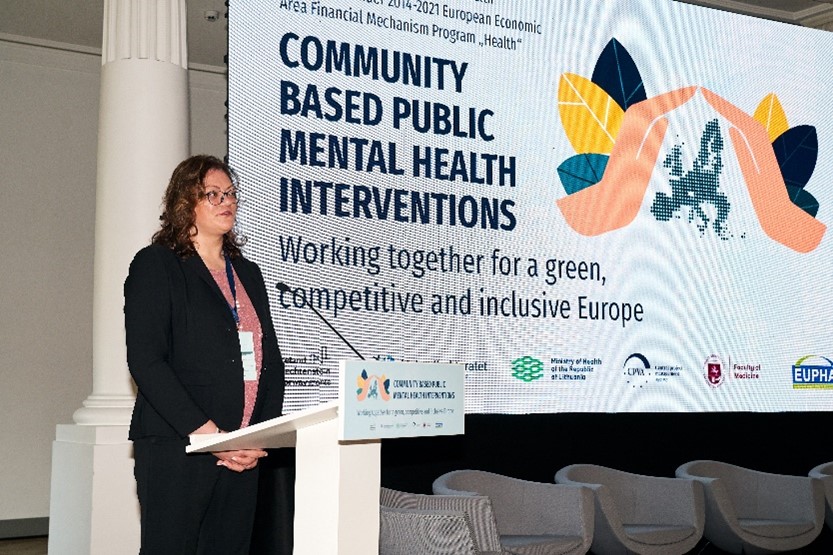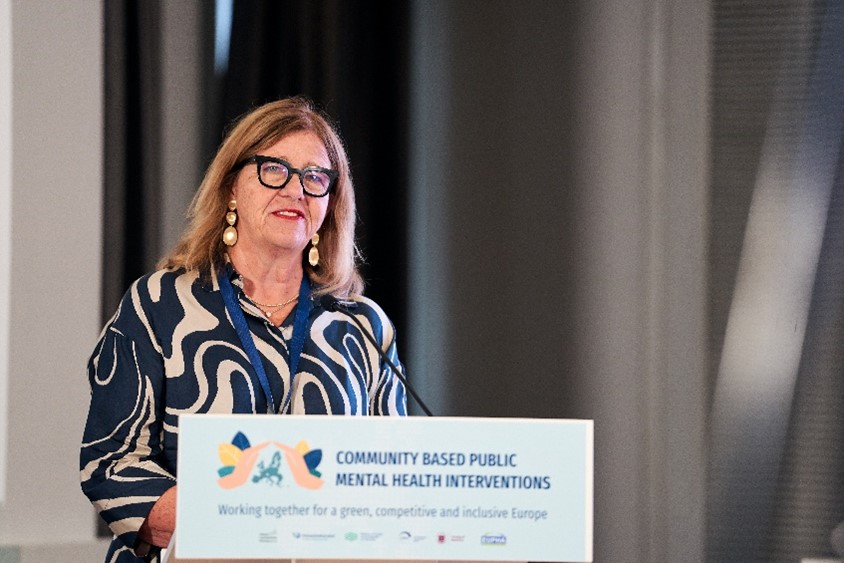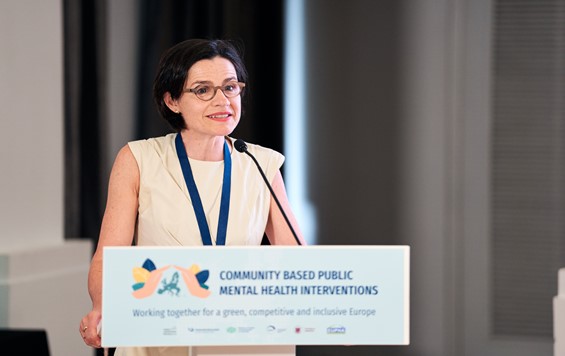 |
The European Public Health Association Newsletter - May 2024 |
1. EditorialDear EUPHA Members and Researchers,It is a period of intense networking, with many events happenings, from the European Public Health Week to the World Health Assembly. An opportunity to remind that health is also about social connection. The World Health Organization (WHO) has recently launched a commission addressing the pervasive issues of loneliness and social isolation. People across all age groups and regions are affected, with current global estimates suggesting that 1 in 4 older adults experience social isolation and between 5 and 15 per cent of adolescents experience loneliness. Alarmingly, rates in low- and middle-income countries are comparable to or even higher than those in high-income countries. The impact of social isolation and loneliness on health is profound and often under-recognized. Individuals lacking social connections face a higher risk of early death, and these issues are linked to anxiety, depression, suicide, and dementia. Additionally, they can increase the risk of cardiovascular disease and stroke. Beyond individual harm, social isolation and loneliness negatively affect entire communities, undermining their safety, prosperity, and effective governance. So let's keep strengthening our social connections for the well-being of our communities! |
2. EUPHA updateWFPHA General assembly and World Health AssemblyPresident Iveta Nagyova and Executive Director Charlotte Marchandise were in Geneva at the end of May to attend the World Federation of Public Health Associations General Assembly where we presented the report of our Region.
They also participated in the WHA77 and its many side-events, exploring themes from Primary Health Care to HPV vaccination, Behavioural Sciences to Urban Health. EuroNet MRPH Spring Meeting Round Table on Universal Health CoverageEUPHA Executive Director Charlotte Marchandise was a panelist at the round table on 10 May organised during the EuroNet MRPH Spring Meeting.
Moderator:
4th International Conference on Public Mental Health, Vilnius : "Community-Based Public Mental Health Interventions."The Public Mental Health Section of EUPHA in collaboration with international partners – The Norwegian Health Directorate, Ministry of Health of the Republic of Lithuania, Vilnius University, and Iceland, Lichtenstein and Norway grants for the 4th time has organized the International Public Mental Health conference “Community based public mental health services” which took place in Vilnius, Lithuania on the 29th of May, 2024. The scientific section of the conference was opened by Ms Charlotte Merchandise, the Executive Director of EUPHA in her keynote presentation highlighting the importance of innovative solutions, collective efforts and the comprehensive approach to public mental health. Assoc. Prof. Dr. Marija Jakubauskiene, Vilnius University (Public Mental Health Section of EUPHA) presented an overview of the public mental health perspectives in Lithuania. Prof. Jutta Lindert, University of Applied Sciences Emden/Leer (Public Mental Health Section of EUPHA) in her presentation has highlighted the importance of the family relationships for the public mental health. Assoc. Prof. Dr. Lourdes Cantarero Arevalo, University of Copenhagen (Child and Adolescent Health Section of EUPHA) presented a comprehensive overview of the evidence-based youth-driven interventions for advancing child and adolescent health. Networking and collaborations of the International Public Mental Health Conference will be continued in the winter school on public mental health in December 3-6, 2024 in Vilnius, Lithuania.
Top left: Charlotte Marchandise, top right: Marija Jakubauskiene, bottom left: Jutta Lindert, bottom right: Lourdes Cantarero Arevalo (photographer: Vaidas Garla). Meet the section: Public Health EconomicsPublic Health Economics integrates economic analyses and techniques to provide a comprehensive perspective of the economic implications of public health policies and interventions. Research in the field goes beyond economic evaluation of public health interventions and healthcare cost analyses. Some examples are the economic case for prevention investments, the quantification of costs associated with lifestyle-related diseases. Beyond these, other examples include the study of unemployment impact on health, the comparison between prevention and treatment options with standard practices or the design of toolkits to aid policymakers and health professionals in their decision-making processes. Registration open for Symposium: From single chronic disease to multimorbidity prevention, surveillance, and public health policy: need for multisectoral approachesSanté publique France and the European Public Health Association jointly organize the international symposium on multimorbidity, 26 - 27 June at Saint Maurice. Symposium will be in English language. Upcoming EUPHA webinarsIn June the EUPHA Health and care workforce research section organises several webinars. The ‘permacrises’ and its exacerbating effects of the healthcare workforce crisiss Re-visioning the governance and organisation of healthcare work: skill-mix, leadership, and new professional groups Global healthcare labour markets and mobile workforces |

3. European Public Health WeekEUPHW update MayThe sixth edition of EUPHA’s European Public Health Week took place earlier this May. Despite (or because) of some changes to the format and the approach, the EUPHW was again a success! This year’s overarching topic Health is a political choice! indeed resonated with the public health community across Europe (and beyond). So did the link to the topic of this year’s European Public Health Conference in Lisbon – innovation. Majority of events really did touch upon the relevance of health and healthcare in many elections taking place this year in Europe and around the worlds - and discussed innovative approaches to putting health high(est) on the political agenda. |
4. European Public Health Conference
17th EPH CONFERENCE, LISBON, PORTUGAL Next ‘Sailing to Lisbon’ webinar – Monday 3 June, 17:00 CETIn the context of the upcoming European elections, it is very important to hear what the Political Groups at the European Parliament will be proposing, so we have invited a representative of each of the seven Groups. The debate will be moderated by a Dulce Salzedas, a Portuguese journalist with extensive experience in covering the news in the health sector. Read more here. Pre-confererence programmeWe are excited to announce an interesting programme of pre-conferences on Monday and Tuesday 11 and 12 November. If you would like to attend a pre-conference, registration is required. Pre-conferences can be booked when registering for the main conference. You can add a pre-conference to your existing registration by sending an email with your preferred pre-conference to registration@ephconference.eu. You will receive an adjusted invoice by email. Thematic fields include cancer prevention; health literacy; European Health Data Space; Artificial Intelligence; digital health; strategic foresight methodology; behavioural and cultural insights; social security, work and health; prevention and preparedness; syndromic surveillance systems; enhancing your writing skills; and future health scenarios. Detailed information here. Theme and programmeThe theme of this year’s EPH Conference ‘Sailing the waves of European public health: exploring a sea of innovation’, reflects our collective journey. Just as explorers once set out from Lisbon to discover new worlds, we as public health professionals are embarking on a journey of innovation and discovery in our own field. We aim to push the boundaries, discover new approaches and chart the course for the future of public health in Europe. The focus of our journey will be on:
The themes will be dealt with in our plenary sessions, organised by EUPHA, EuroHealthNet, European Health Management Association (EHMA), ASPHER, European Observatory on Health Systems and Policies, European Centre for Disease Prevention and Control (ECDC), European Commission and WHO Regional Office for Europe. Read more here. Registration is open with benefits for EUPHA membersRegistration for the Lisbon 2024 is open. You can benefit from early bird registration fees until 1 September. EUPHA members and delegates from Portugal pay € 690 before 1 September, non-members € 790. Students, trainees and colleagues from low- and middle-income countries pay Abstract submision resultsFor those that submitted an abstract please keep an eye on your inbox (and SPAM box) as abstract submission results will be communicated by mid-June. Accepted abstracts are published in the Abstract Supplement of the European Journal of Public Health but only if you have registered for and presented at the Lisbon conference. Funding opportunitiesEUPHA and EPH Conference Foundation have set up the Jouke van der Zee Fund offering registration fee waivers to delegates from lower-middle and upper-middle income countries in the WHO European Region and have an active role at the EPH Conference 2024. You may apply for a waiver if you have an oral/poster presentation or being a speaker/panelist in a workshop and come from one of the eligible countries (listed at our website). Deadline for applications: 1 July 2024. Read more. Conferência de Saúde Pública da Lusofonia
We are excited to announce the Conferência de Saúde Pública da Lusofonia on 11 and 12 November 2024, strengthening cooperation in public health between the nine Member States of the Community of Portuguese Speaking Countries (CPLP). The conference language will be Portuguese. Simultaneous translation into English will be provided. Thematic areas include training and development of the health workforce, health Information and communication, monitoring of SDGs, public health emergency preparedness, research and bioethics. These themes and more will be addressed in plenary sessions and round tables and oral presentations. Registration, with reduced fees for delegates from the Portuguese speaking countries, is through the EPH Conference registration panel. The Lusophone Public Health Conference is organized by EPH Conference, the Portuguese Association for Public Health (APPSP) and the National Association of Public Health Doctors (ANMSP). The conference is held at the Lisbon Congress Center, Portugal. Travel and hotel accommodationYou are advised to book your travel and accommodation early. TAP Air Portugal has been appointed as the Official Airline Carrier of the 17th EPH Conference in Lisbon and kindly offers delegates of the EPH Conference a 10 per cent discount. More here. EUPHA FellowsThis year we will be recruiting EUPHA Fellows again. The selected fellows will have the opportunity to work alongside the EUPHAnxt team, the EUPHA office and the EPH Conference team. Fellows will be selected from those that have an accepted abstract. Stay tuned for the official announcement in the EUPHAnxt newsletter later this month. Welcome to Lisbon 2024The 17th EPH Conference will be held in Lisbon, Portugal, from 12 – 15 November 2024. Theme of the EPH conference 2024 is: Sailing the waves of European public health: exploring a sea of innovation. The main conference is from 13 – 15 November. Pre-conferences will be held on 11 and 12 November. The 17th EPH Conference will be held at the Lisbon Congress Center (CCL). Click here for a virtual tour.
|

5. European Journal of Public HealthEffect of fine particulate matter exposure on gestational diabetes mellitus risk: a retrospective cohort study |
6. Call for proposals, job opportunitiesPhD Position at the University of Amsterdam: 'Empowering Adolescents: Building Resilience Against Planetary Health Misinformation'Are you intrigued by adolescents’ susceptibility to planetary health misinformation, including issues like climate change, biodiversity loss, plastic pollution, and other environmental concerns impacting our planet's health? Are you curious about exploring which groups of adolescents are particularly vulnerable to consuming and unintentionally sharing misinformation? Would you like to delve deeper into how we can empower adolescents through targeted interventions? Then apply for this PhD project! Young Physician Leaders (YPL) Programme 2024: call for nominationsNominations will be accepted from members of the InterAcademy Partnership and the ‘M8 Alliance’ of academic centres. Working group strategic leads and members & internship opportunities: Planetary Health European HubCheck out the various opportunities on LinkedIn here. PhD Candidate: History of Global North-South Public Health Cooperation Utrecht UniversityInterested in researching the diplomatic history of global north-south public health cooperation in a vibrant team? Join us at the ERC-funded project COOPERATION as a PhD researcher. WHO Public Health Support Officer - Universal Health Coverage/Healthier Populations in Zagreb, Croatia and Ljubljana, SloveniaThe Special Initiative on Noncommunicable Diseases (NCDs) and Innovation (SNI) supports Member States in their work to free the WHO European Region from avoidable NCDs. SNI recognizes both the urgency for immediate action as well as the need for a visionary paradigm shift that puts NCDs higher on the political and health agendas for future generations. Therefore, SNI takes a dual-track approach, promoting accelerated progress toward the NCD-related SDG commitments for 2030 (RACE to the Finish) while simultaneously championing the key generational shifts required, to address NCDs within the permacrisis (Vision 2050), and achieve a sustainably healthier European Region. |
7. Interesting newsSecond PROPHET newsletterA PeRsOnalized Prevention roadmap for the future HEalThcare WHO Young Researchers ForumProgramme on the Quality of Child and Adolescents Mental Health Care under the WHO European Athens Office on Quality of Care and Mental Health Flagship Initiative is launching the WHO Young Researchers Forum, dedicated to advancing mental health outcomes for children and adolescents. Register using the link here for the June 4th launch event. Johns Hopkins Bloomberg School of Public Health: To Protect Human Health, We Must Protect the Earth's Health“The Earth crisis now represents a humanitarian crisis,” says Sam Myers. But there are solutions that serve both people and the planet. The health data quality labelThis May, another EU-funded project kicked off – the QUANTUM project on developing data quality and utility labels for the European Health Data Space. New episode of the UNESCO Inclusive Policy Lab podcast: "There is no refuge in the lab, science needs to reach out"This episode's guest is Sudip Parikh. He is the Chief Executive Officer of the American Association for the Advancement of Science (AAAS) and Executive Publisher of the Science journals. RIVM: "Solar panel recycling could be more sustainable"IVM looked into ways being developed to reuse raw materials used in solar panels. The four ways described by RIVM in this report are more sustainable than how solar panels are currently recycled. This involves the glass, the silicon from solar cells and the plastic back sheet. Hazardous substances such as lead, antimony and PFAS are also a cause for concern. From 2030 onwards, an increasing number of solar panels will be replaced. RIVM therefore recommends encouraging the development towards sustainable design and recycling now. |
8. Upcoming courses and conferences
|
9. Interesting publicationsUsing narratives to correct politically charged health misinformation and address affective belief echoesIn May 2020, news outlets reported misinformation about the Centers for Disease Control (CDC) related to COVID-19. Correcting misinformation about outbreaks and politics is particularly challenging. Affective belief echoes continue to influence audiences even after successful correction. Narrative and emotional flow scholarship suggest that a narrative corrective with a positive ending could reduce belief echoes. Therefore, this study investigated the efficacy of a narrative corrective with a relief ending for correcting misinformation about the CDC. "You get out of the house, you talk to each other, you laugh...And that's fantastic" - a qualitative study about older people's perceptions of social prescribing in mainland PortugalSocial prescribing (SP) is a non-clinical approach, most commonly based in healthcare units, that aims to address non-medical health-related social needs by connecting individuals with community-based services. This qualitative study explores the perception of Portuguese older adults regarding the benefits of SP and their willingness to participate in SP initiatives. AI Quality Standards in Health Care: Rapid Umbrella ReviewIn recent years, there has been an upwelling of artificial intelligence (AI) studies in the health care literature. During this period, there has been an increasing number of proposed standards to evaluate the quality of health care AI studies. Making a moral argument without moral bullyingSandro Galea’s “The Healthiest Goldfish” blog is always a pleasure to read and digest. The latest post, first in a three-part series, on “making a moral argument without moral bullying”, is no exception. Breaking the Mold: Rethinking Global Health Through a Co-Creation LensDeterminants of health are a complex range of biological, social, economic, environmental, and political factors that transcend national boundaries and governments. This creates complex problems with global processes profoundly influencing how we understand and approach health challenges. As these occur in a webbed, dynamic, and interdependent fashion, health can be viewed as a complex issue, with traditional top-down approaches often falling short in addressing pressing issues. This is possibly due to an overemphasis on generating universal knowledge through theory-building and testing in controlled conditions. An alternative approach, called co-creation, involves developing interventions within specific contexts, fostering collaborative knowledge generation, and establishing equitable and sustainable partnerships. The Impact of Generative Artificial Intelligence on Socioeconomic Inequalities and Policy MakingGenerative artificial intelligence has the potential to both exacerbate and ameliorate existing socioeconomic inequalities. In this article, we provide a state-of-the-art interdisciplinary overview of the potential impacts of generative AI on (mis)information and three information-intensive domains: work, education, and healthcare. Mapping competency in public health training - experience of the Europubhealth consortiumPublic health education aims at producing a competent workforce. The WHO-ASPHER framework proposes a set of relevant public health competencies organised in 10 sections (e.g. science practice, leadership, law policies and ethics etc). As part of the Europubhealth (EPH) consortium, eight universities collaborate for the delivery of a 2-year international public health master course. The training pathway includes a first “foundation” year, with a choice of four options (components), and a second “specialisation” year with a choice of seven components. In 2020, EPH consortium decided to use the WHO-ASPHER framework in order to map the competencies addressed and the level of proficiency targeted by each component of its master course. Policy Brief: The socioeconomic drivers and impacts of Antimicrobial Resistance (AMR): Implications for policy and researchThe policy community, international and national, recognizes the significant health and economic impacts of antimicrobial resistance (AMR) on individuals, households, health systems and society. It is seeking sustainable solutions but often neglects the socioeconomic and sociocultural drivers of AMR. |
10. European Institutions’ newsThe Observatory on Health Systems and Policies at EUPHWThe Observatory on Health Systems and Policies organised two sessions at the European Public Health Week. Arguably the most important EU news this month: European elections (6-9 June 2024)Choose your country of voting and your preferred language to find out how to vote. As an EU citizen, you can vote in your country of origin, from abroad or in the EU country you live in. European Health Union: stronger and better prepared for the futureThe Commission adopted a Communication on the European Health Union, which highlights the strides made in EU health policy over the last four years, for the benefit of citizens in the EU and worldwide. Commission facilitates faster access to medicines with clear rules for joint clinical assessmentsThe European Commission adopted new rules for the joint clinical assessments of medicines at Union level, contributing to faster access to medicines for EU patients. These new rules define the timelines and the steps for conducting EU joint clinical assessments. The assessment reports will provide scientific evidence to Member States' authorities at an early stage after a medicine's marketing authorisation. This will help them to decide about its use in the national health system, assessing their value on the basis of robust evidence, and thus taking more effective, timely decisions when bringing medicines to the market. HERA launches the Critical Medicines Alliance to tackle shortages of critical medicinesIn a concerted effort to combat shortages of critical medicines, HERA, in collaboration with the Belgian Presidency of the Council of the EU, has officially launched the Critical Medicines Alliance. The announcement was made during the informal EPSCO Council meeting of health ministers, marking a significant stride towards fortifying the European Health Union. |
11. European Centre for Disease Prevention and Control newsEurosurveillance - Volume 29, Issue 21, 23 May 2024Rapid communication Research Eurosurveillance - Volume 29, Issue 20, 16 May 2024Rapid communication Outbreaks Surveillance Letter Eurosurveillance - Volume 29, Issue 19, 09 May 2024Outbreaks Surveillance Research Letter Eurosurveillance - Volume 29, Issue 18, 02 May 2024Rapid communication Surveillance Research |
12. WHO newsCall for experts – WHO Technical Advisory Group (TAG) on Economic and Commercial Determinants of Health - deadline 7 JulyWHO headquarters is establishing a Technical Advisory Group (TAG) on the Economic and Commercial Determinants of Health (CDOH) and the call for experts is now open. The TAG will act as an advisory body to WHO to support work on the economic and commercial determinants of health:
More information including how to apply can be found here: https://lnkd.in/enmAKjqD Please email Monika Kosinska, cdoh@who.int for further information. Cardiovascular diseases kill 10 000 people in the WHO European Region every day, with men dying more frequently than womenWHO/Europe report warns of lethal levels of salt consumption and uncontrolled high blood pressure. New WHO/Europe report highlights a direct link between COVID-19 and increased obesity in school-aged childrenA new report from WHO/Europe confirms what has long been suspected: a link between the COVID-19 pandemic and increased rates in obesity among children 7 to 9 years old. Joint press release from WHO and UNICEF: measles cases across Europe continue to surge, putting millions of children at riskRapid response to measles outbreak is critical, as cases this year predicted to soon exceed total number reported in 2023. World No Tobacco Day 2024: protecting children from tobacco industry interference31 May is the World No Tobacco Day (WNTD). This year, once again, WHO and public health champions from across the globe will come together to raise awareness about the harmful influences of the tobacco industry on youth. Optimizing the health and care workforce through data and digital healthWHO/Europe will host a webinar on 6 June to explore how the work of health and care professionals can be optimized with data and digital health. This is the 8th webinar in the Decoding Data and Digital Health series, which addresses digital health topics of importance to countries in the WHO European Region. WHO/Europe is launching the first-ever co-designed WHO Young Researchers Forum to improve the quality of child and adolescent mental health careThe WHO Office on Quality of Care and Patient Safety in Athens, Greece, through its Programme on the Quality of Child and Adolescent Mental Health Care, in collaboration with the WHO European Mental Health Flagship, introduces the first-ever WHO Young Researchers Forum to improve the quality of child and adolescent mental health care, set to be launched on 4 June. |
|
|
|
Unsubscribe If you would like unsubscribe from the EUPHA newsletter then please click here. |
